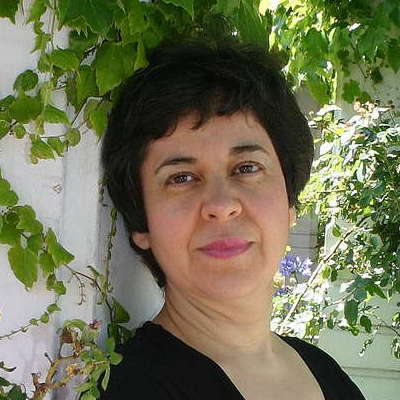 WORD SEARCH: Can you solve Allan Rae's classical music word search puzzles? We're currently publishing one per month.
WORD SEARCH: Can you solve Allan Rae's classical music word search puzzles? We're currently publishing one per month.
A Year Late
KEITH BRAMICH pays a visit to the Three Choirs Festival
The Three Choirs Festival is the world's longest-running non-competitive classical music festival, and it celebrated in 2015 the three hundredth anniversary of the festival's first meeting. Another celebration - of the actual three hundredth festival - should come in 2028, because the event had to pause during three major world events - World Wars I and II and the COVID-19 pandemic.
After double the usual length gap between festivals and with the first Three Choirs performances by Worcester Cathedral's new Musical Director and Festival Artistic Director Samuel Hudson, there was quite a buzz on the first day of this year's festival.
As usual, Roderic Dunnett will be reporting later on the whole festival. As a taster, I popped over to Worcester Cathedral in the UK's Midlands region yesterday, to cover a couple of the first day's events, but first I'm previewing some of the rest of the week's events, which continue until Sunday 1 August 2021.
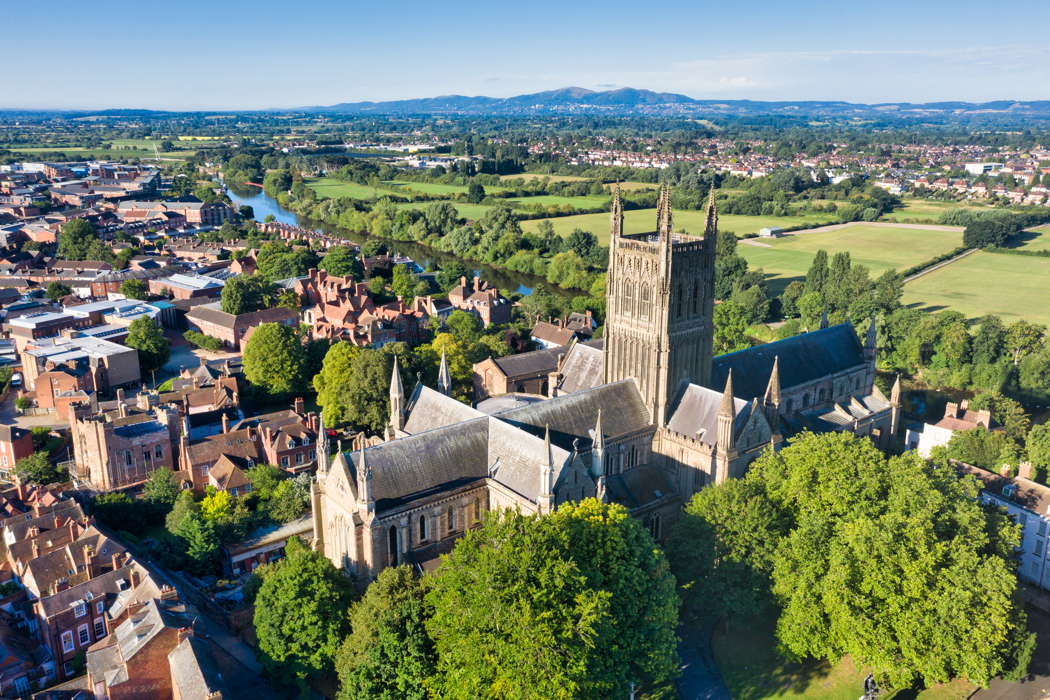
Worcester Cathedral, setting for many Three Choirs Festival events this year, with (left) King's School Worcester, which also hosts Three Choirs events. Behind the cathedral is the River Severn, and in the distance, the Malvern Hills. Photo © 2020 Michael Whitefoot
This afternoon's tribute to Donald Hunt (1930-2018), a former Worcester Cathedral Director of Music, at 2pm (on 25 July 2021) in Worcester's College Hall, is already sold out, but if you're close by and see this quickly enough, it might be worth asking at the box office for returns. Hunt's old choir, the Donald Hunt Singers, which he founded in 1980, and now renamed as The Elgar Chorale of Worcester, will present Now Sleeps the Crimson Petal - a programme of music by Donald Hunt himself, Elgar, Gustav Holst, Herbert Sumsion, Howard Blake, Piers Maxim - the current conductor of the Elgar Chorale - and a new commission by Roderick Williams, who of course we currently know better as a high-profile baritone.
One of the most notable concerts this week features the first performance of a new work by Gabriel Jackson, The World Imagined, commissioned jointly by this festival and the USA's Elgin Master Chorale, 7.45pm on Tuesday 27 July. There's also a chance to hear Armstrong Gibbs' rarely performed hour-long choral symphony, Odysseus, 7.30pm on Saturday 31 July. In Kidderminster Town Hall at 2.30pm on Wednesday 28 July, the English Symphony Orchestra conducted by Kenneth Woods plays music by Emily Doolittle, Steve Elcock and Beethoven.
The 2021 Three Choirs Festival ends with a rather special performance of Haydn's The Creation - special because Paul McCreesh has 'fine-tuned' the English text (which had an interesting journey from Milton's English via Van Swieten's German translation, then back into English), and special also because of the involvement of Gabrieli Roar, a partnership between the Gabrieli Consort and a network of British youth choirs.
Other evening concerts in Worcester Cathedral feature the Gabrieli Consort and Players in Purcell's King Arthur (7.30pm tomorrow, Monday 26 July), the Requiem by Maurice Duruflé (Wednesday 28 July, 7.30pm), J S Bach's Magnificat (Thursday 29 July, 7,30pm) and Benjamin Britten's St Nicolas (Friday 30 July, 7.30pm). There's more Gabriel Jackson, programmed with works by Colin Matthews and Ethel Smyth, this evening - 7.30pm, Sunday 25 July - performed by Marcus Farnsworth and the Goldfield Ensemble conducted by Adrian Partington.
Then there's a whole network of organ, piano and other recitals and concerts, plays, talks, walks, visits to the local Nicholson & Co organ workshop and other events, mostly at venues in the City of Worcester.
Finally, because this is a Cathedral-based festival, there are Anglican church services every day. These include Choral Evensong every afternoon until Saturday, each featuring different choirs, organists, conductors and music, plus a sung Eucharist and spoken Evening Prayer on Sunday 1 August. Full details of all Three Choirs Festival events can be found at 3choirs.org
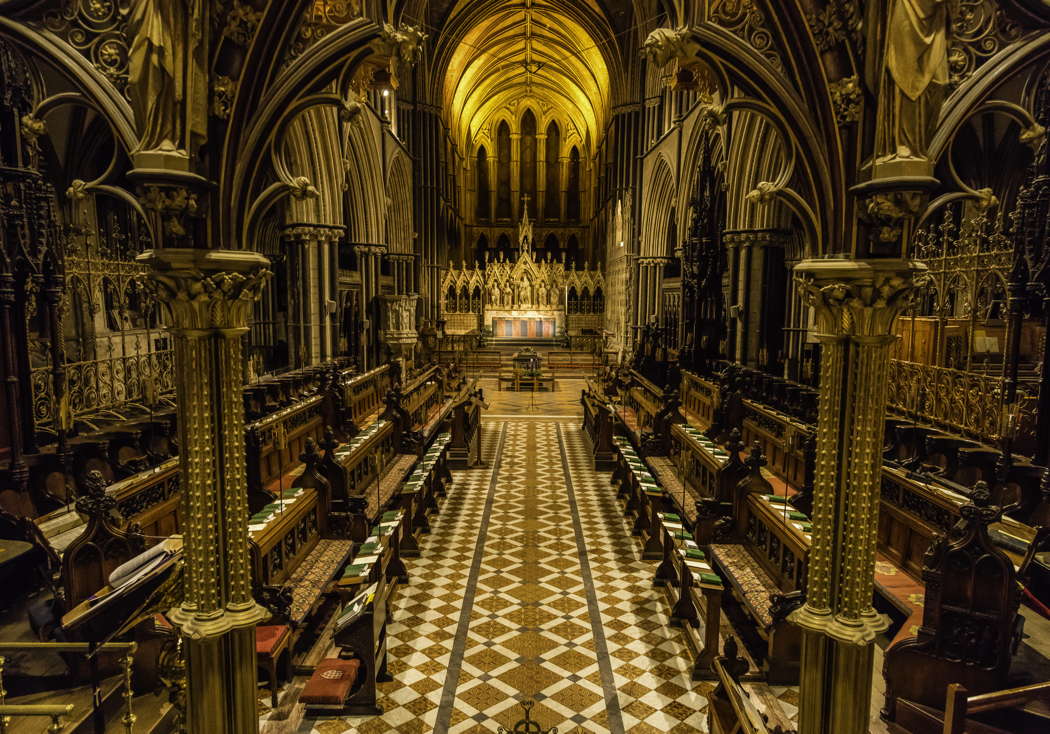
The Choir of Worcester Cathedral, setting for the daily Choral Evensong services at this year's Three Choirs Festival. Photo © 2016 Michael Whitefoot
The first Choral Evensong, yesterday afternoon, was sung well by the Worcester Cathedral Chamber Choir, accompanied by organist Nicholas Freestone and conducted by Stephen Shellard. The service was taken by the Reverend Georgina Bryne, Residentiary Canon at Worcester Cathedral. The striking and unusual Responses featured here were written by Ian King, a composer well-known in this festival's three host cities, Gloucester, Hereford and Worcester. He was born in Hereford in 1962 but sadly passed away just a few months ago in December 2020. 'I believe that in time he will be recognised as a significant composer of Anglican Church Music', writes Adrian Partington, Director of Music at Gloucester Cathedral, where a SOMM Recordings CD of Ian's music is in the pipeline.
Also notable in this service were the Canticles in D by George Dyson (1883-1964), known for his 1930 cantata The Canterbury Pilgrims. I thought this Magnificat and Nunc Dimittis came across best of all the music performed in this service. Least effective, to my ear, was the Psalm (144), where the organ volume rather eclipsed the choir.
Also performed was Edward Elgar's setting of Psalm 29, Give unto the Lord, providing a link to the evening concert which followed this service, which contained a rather more substantial work by Worcester's best-known composer.
Samuel Hudson chose music by Aaron Copland, Beethoven, Vaughan Williams and Elgar for this, the first of the evening choral and orchestral concerts in the Cathedral. He also kept previous Worcester Director of Music Peter Nardone's layout from the 2017 festival, with the Philharmonia Orchestra and the Festival Chorus under the tower in the middle of the Cathedral, with the audience stretching back towards the West Window and the River Severn. Samuel was introduced on stage by Peter Atkinson, Dean of Worcester Cathedral, who joked about the festival starting a year late, and commented on the 'extraordinarily difficult' task of putting together a festival at a time when the UK government's pandemic rules kept changing.
As an aside, my friends and I spoke to one of the ladies from the Festival Chorus after the concert, who described how difficult it had been rehearsing (since May) for this festival. One rehearsal had been cancelled just as it was about to start, others took place out-of-doors in the Cathedral cloisters, and another was held using all the space of the cathedral, with each singer at least three metres away from anyone else.
The concert began with a dramatic and rousing performance of Fanfare for the Common Man by Aaron Copland. The significance of this piece here is presumably that it's one of a series of 'morale boosting' works, commissioned during the USA's first year of involvement in World War II, which is the previous time that the Three Choirs Festival had been paused. The clarity of Samuel Hudson's conducting was immediately apparent - quite a contrast from that of his predecessor.
The next two works are both linked to the festival's theme of journeys. (The Souvenir Programme's cover image by Studio Savidge features various balloons and flying machines, perhaps inspired by tomorrow morning's Goldfield Productions event, Three Stories about Flying, 11.30am, Monday 26 July at Henry Sandon Hall.)
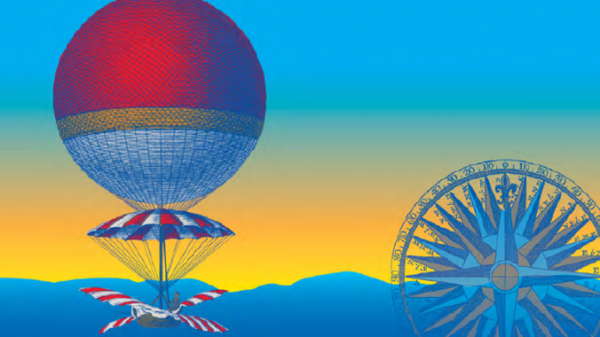
Part of the Studio Savidge design for the 2021 Three Choirs Festival
Beethoven's seldom-performed Calm Sea and Prosperous Voyage is an eight minute choral and orchestral cantata linking two distinct poems by Goethe, starting softly and using various effects to create calmness, such as chords from the women of the choir which start strongly and gradually fade away. The orchestral start to the Voyage section, although together, had something of a scrabbly feel as it got going. The ending of this work sounds quite similar to Beethoven's Choral Fantasy and his Ninth Symphony.
Continuing the journey theme, young baritone Tom Mole came on stage to sing Vaughan Williams' nine well-known Songs of Travel, dating from the very beginning of the twentieth century and setting Robert Louis Stevenson. They're usually performed with piano accompaniment. These orchestral arrangments were made later by the composer with help from an assistant, Roy Douglas. Tom Mole's interpretations were sensitive and well-sung, but at times it was difficult to hear him above the Philharmonia Orchestra, at least from where we were sitting, towards the back of the nave. I wondered whether the orchestra could have played that bit more softly still.
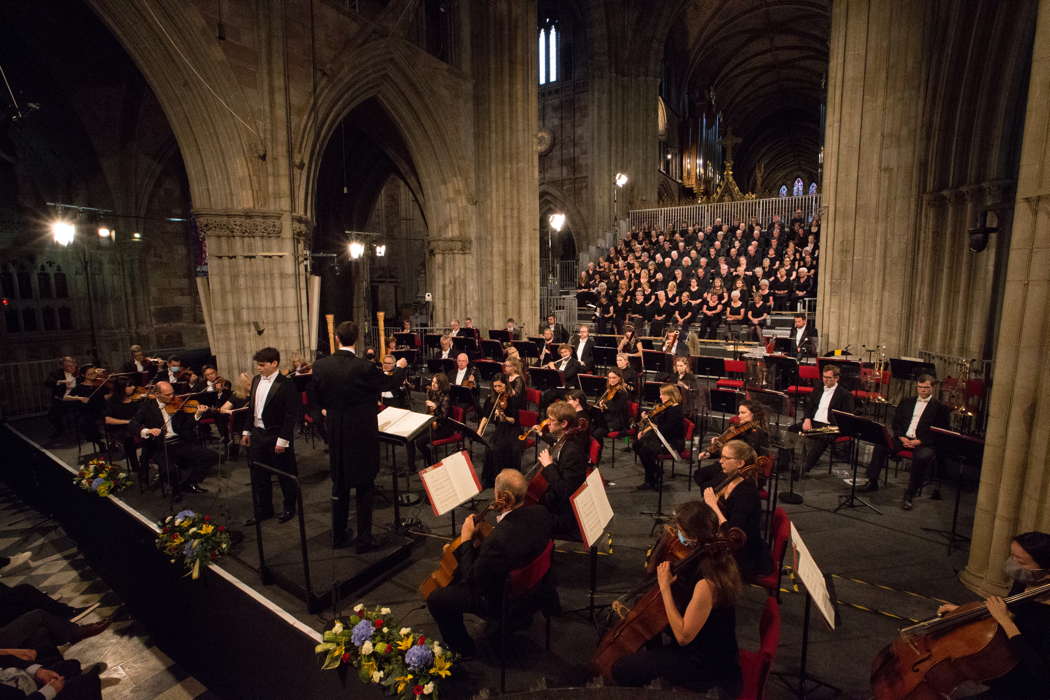
Tom Mole singing Vaughan Williams' Songs of Travel with Samuel Hudson and the Philharmonia Orchestra. Photo © 2021 Michael Whitefoot
After the interval, it was Elgar's turn - his astonishing The Music Makers, continually shifting and changing throughout its thirty-five minutes, often dramatic and intentionally chaotic, and elsewhere dreamily romantic, with the Enigma theme never far away. Soprano soloist Marta Fontanals-Simmons had little trouble riding the excellent orchestra, and the chorus, which sings this work regularly, was superb, right through to the work's quiet and slightly ominous ending.
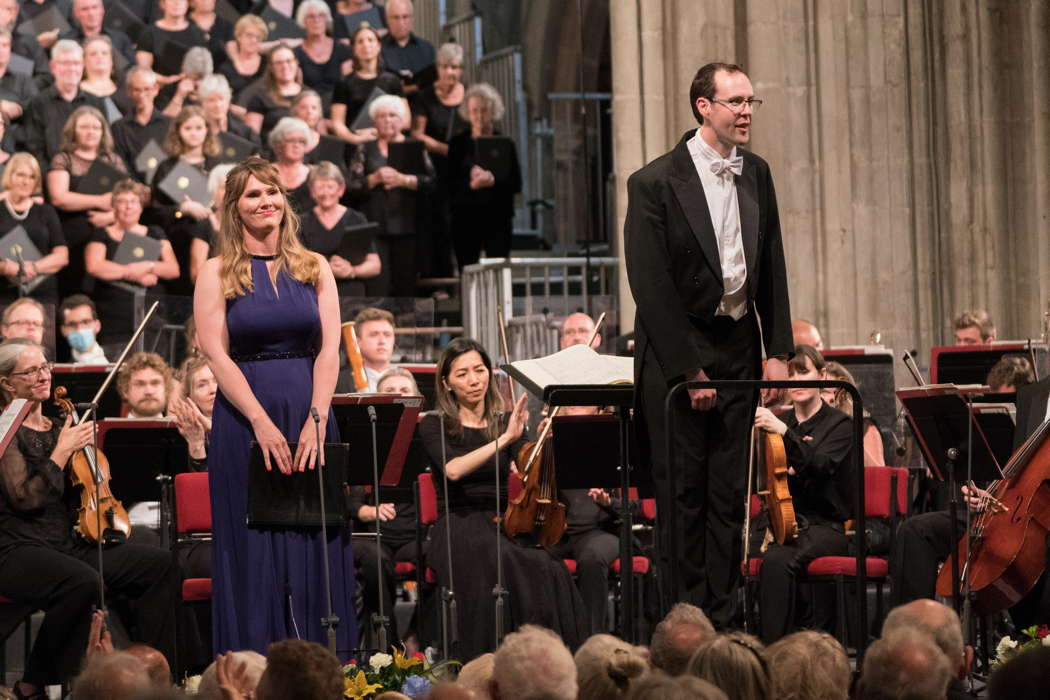
Marta Fontanals-Simmons and Samuel Hudson, acknowledging applause at the end of Elgar's The Music Makers, with members of the Philharmonia Orchestra and the Three Choirs Festival Chorus. Photo © 2021 Michael Whitefoot
This was a fine start to Samuel Hudson's first Three Choirs Festival. Apparently he's really popular with the Festival Chorus and very easy to work with. I hope that he's able to continue in this role for many years.
Copyright © 25 July 2021
Keith Bramich,
Worcestershire UK



